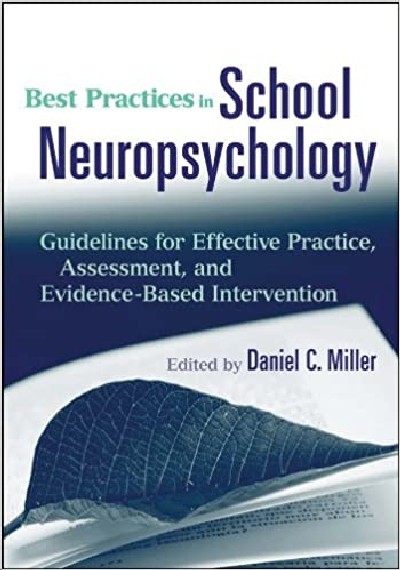BEST PRACTICES IN SCHOOL NEUROPSYCHOLOGY
GUIDELINES FOR EFFECTIVE PRACTICE,ASSESSMENT, AND EVIDENCE-BASED INTERVENTION
ISBN: 9780470422038
Συγγραφέας: DANIEL C. MILLER
Κωδικός: 9780470422038
Άμεση παραλαβή / Παράδοση σε 1-3
Τιμή
100,00€ 30,00€
It is an exciting time to specialize in school neuropsychology, with countless theoretically and psychometrically sound assessment instruments available for practitioners to use in their evaluations of children with special needs. Yet the field faces the challenges of establishing evidence-based linkages between assessment and interventions and of broadening its approaches to culturally diverse populations. Edited by a leading expert in school neuropsychology, Best Practices in School Neuropsychology: Guidelines for Effective Practice, Assessment, and Evidence-Based Intervention addresses these challenges and their solutions and provides learning specialists and school psychologists with clear coverage and vital information on this burgeoning area of practice within school psychology. This insightful reference features comprehensive discussion of: Current school neuropsychological assessment and intervention models Best practices in assessing cognitive processes An overview of what neuroscience offers to the practice of school neuropsychology How school neuropsychology fits within a Response to Intervention (RTI) model The rationale for the importance of school psychologists' collaboration with parents, educators, and other professionals to maximize services to children Clinical applications of school neuropsychology with special populations, academic disabilities, processing deficits, and medical disorders Unique challenges in working with culturally diverse populations Featuring contributions from internationally renowned school psychologists, neuropsychologists, clinicians, and academics, Best Practices in School Neuropsychology is the first book of its kind to present best practices and evidence-informed guidelines for the assessment and intervention of children with learning disabilities, as well as other issues practitioners working with children encounter in school settings.
| Χαρακτηριστικά Προϊόντος | |
|---|---|
| ISBN | 9780470422038 |
| Συγγραφέας | DANIEL C. MILLER |
| Εκδότης | GREENE AND MATHIESON'S |
| Επίπεδο | ΠΑΝΕΠΙΣΤΗΜΙΟ |
| Εξώφυλλο | ΣΚΛΗΡΟ |
| Αρ. Έκδοσης | 1η |
| Έτος Έκδοσης | 2010 |
| Σελίδες | 857 |
| Χώρα προέλευσης | Η.Π.Α |
Αυτή η σελίδα προστατεύεται από το σύστημα reCAPTCHA της Google. Μάθετε περισσότερα.










